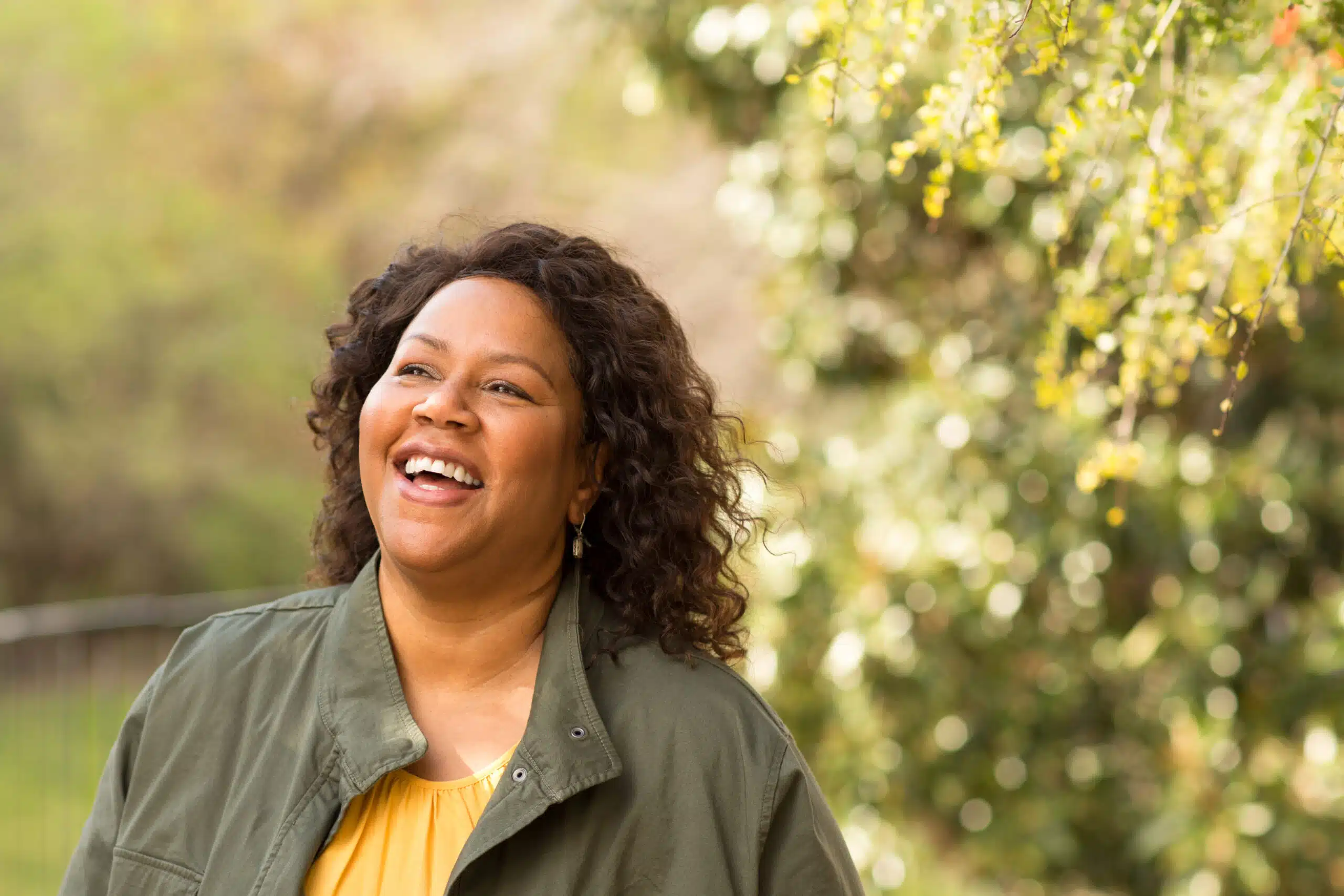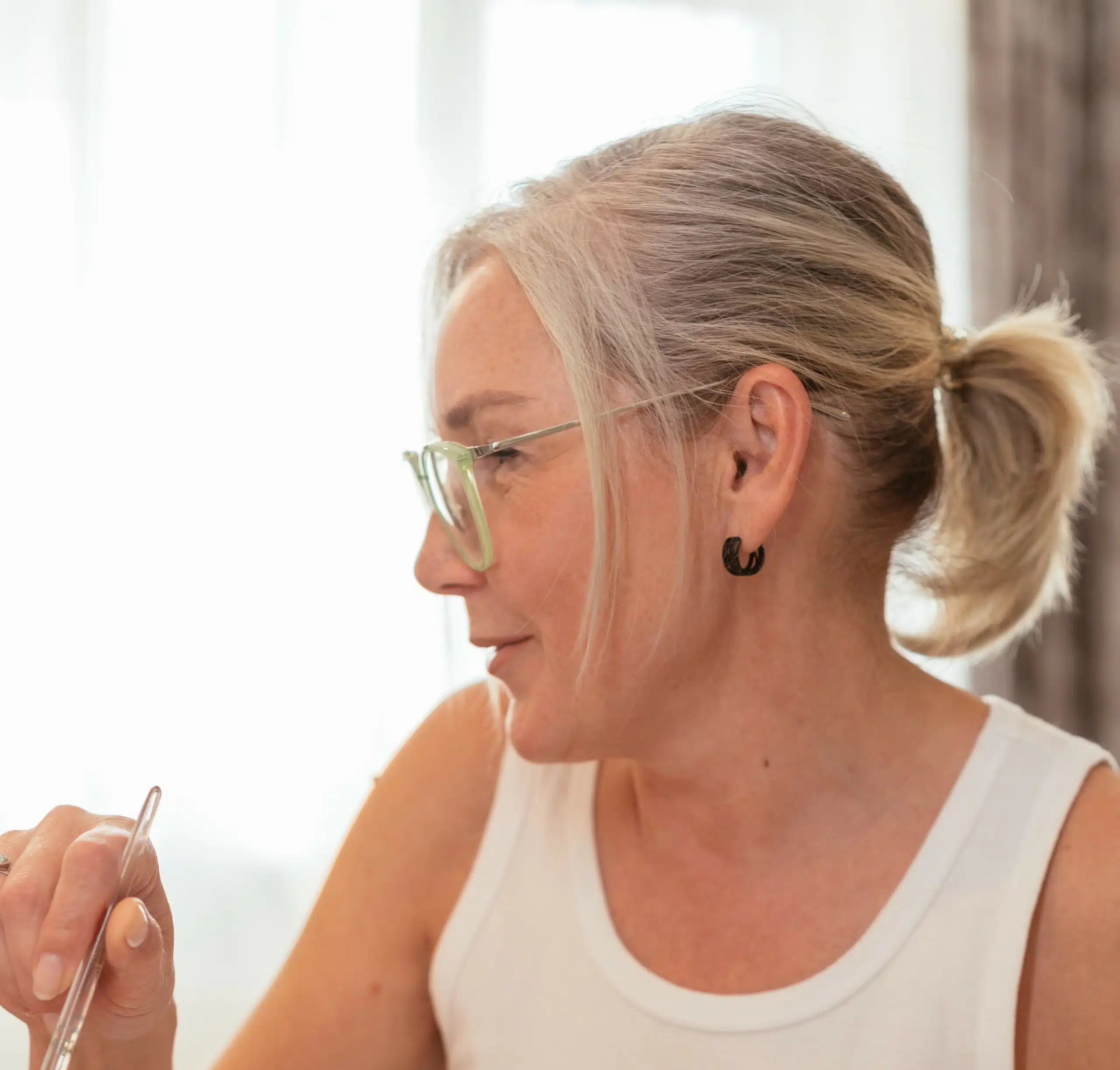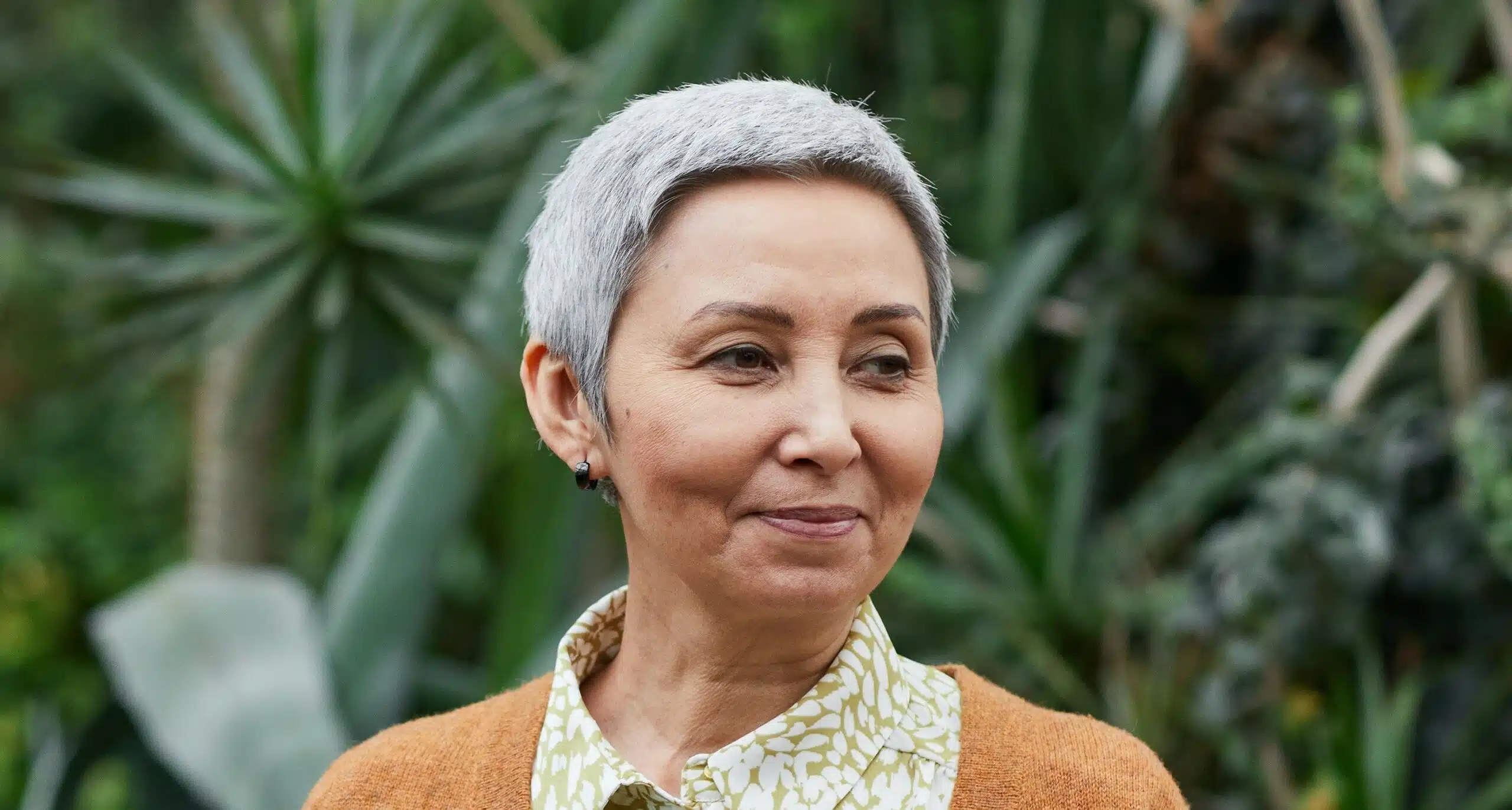Home | Blog | Female health | Hair loss in women: how to stop it

Female hair loss: what to look out for
We shed hair every day, and it’s rarely noticeable, unless we start to lose more of it than normal. When this happens it can damage a lot of people's confidence. Often, it’s completely natural - it happens as our hair gets thinner with age.
However, when women lose hair it can be linked to certain health conditions. We’re going to outline the main ones in this page. There are lots of conditions related to female hair thinning and it might not necessarily be one that you need to worry about.


Was this article useful?
What causes hair loss in women?
The causes of thinning hair in women can vary. Your hair loss can be so minimal that you hardly even notice it. If this is the case then it’s unlikely that you’ll try to find out what’s caused it, especially if it quickly returns to normal.
If your hair loss is something that’s concerning you, then researching what causes thinning hair in women can be really helpful. Sometimes having a little more information on a subject can help us to feel more confidently about it. Below are some of the most common causes of female hair loss:
Thyroid hormone levels
Your thyroid is a gland in the front of your neck. It secretes hormones which are needed to support your body’s function. It’s thought that too much or too little of this hormone can lead to hair loss in women. When your thyroid produces too many hormones it’s called hyperthyroidism and, likewise, hypothyroidism when it doesn’t produce enough. Thankfully both conditions are easily diagnosed and managed with treatments.. Thankfully it’s easily diagnosed and treatments are available to help relieve symptoms.
Alopecia areata
Alopecia areata is an autoimmune condition that results in patches of hair falling out from your head. It’s a fairly common but unpredictable hair-loss condition that can range in severity from person to person. The exact reason why some women develop alopecia is unknown, but it’s thought to be influenced by genetic factors (you’re more likely to get it if you have a family history of it), as well as environmental factors such as emotional or physical stress.
For some women the condition is mild, where only small patches of hair fall out to the point where it might not even be noticeable to the person who has it. In mild cases of alopecia the condition is usually only temporary, and your hair may grow back to its previous thickness after just a few months.
It can, though, affect other women much more strongly, sometimes to the point where all of their head hair falls out. When this happens it’s called alopecia totalis. Although alopecia doesn’t cause any further health issues, it can be both stressful and distressing for the women who suffer from it, leading to mental health issues such as depression and anxiety. More severe cases of alopecia are likely to affect you for much longer periods of time, often permanently.
But although there’s no cure for alopecia, there are things that can be done to help support hair regrowth, such as taking treatments like minoxidil (Regaine), or seeking emotional support and help for the mental health issues that can arise from and contribute to alopecia.
Postpartum hair loss
Having a child can be one of the most amazing experiences in the world, but sometimes it can cause unexpected effects on your health. You might attribute this hair loss to the stress of having a newborn baby in the house, but it can actually be due to hormone changes. When you give birth it can lead to your oestrogen levels dropping. Since hormonal changes are linked to hair loss, the change in oestrogen levels can lead to your hair falling out. You’ll usually see these effects around four months after childbirth.
The good news is that your hair should go back to normal after one to two years. Using over the counter hair and conditioner treatment can help but, otherwise, you may just need to give it some time.
Stress - how does stress cause hair loss?
Emotional stress can cause hair loss in both men and women. Hair loss as a result of stress is referred to as ‘telogen effluvium’. High stress levels can push your hair follicles into a resting phase. After a few months these hairs might begin to fall out when you complete simple tasks like brushing or washing your hair.
Stress can have serious health implications and you should always speak to a doctor if you feel like you’re getting too stressed.
Medication
Certain medications can cause hair loss as a side effect. Like with stress, they can affect your hair follicles and force them into a resting phase. Birth control tablets and antidepressants are sometimes known for having this effect. If you feel like your medication is causing hair loss then it’s worth speaking with your clinician. It’s likely that there’s another type of treatment you can use to help you with your condition, whilst keeping your head full of hair.
Poor diet
Hair loss has been associated with not getting enough vitamins and minerals in your diet. Because of this it’s important that you try and include a variety of different fruits and vegetables in your diet, as these can help provide your body with all the vitamins and minerals to keep your hair nice and healthy. Another thing you can do to make sure you’re getting enough vitamins is to take supplements. Most vitamin supplements can be bought over the counter at a pharmacy or your local supermarket. (We do, however, ask that you speak to your clinician before you start taking any over-the-counter supplements.)
Hair treatments and styling
Certain dyes and hairstyles can have a negative effect on your hair follicles. The chemicals in strong hair dyes can damage hair follicles and wear them down over time. Eventually, they’ll cause your hair to thin and fall out.
Another way that hairstyles can damage your hair is through traction alopecia. Traction alopecia happens when your hair is placed under a lot of tension. This is common in hairstyles like ponytails and cornrows. Wearing hats, scarves and bandanas on your head can have a similar effect.
Smoking
Smoking is known to cause various health conditions. Over the years many clinical trials have been carried out to test the effects of smoking on people’s physical appearance. Results have shown that people who regularly smoke tend to look older than they are.
Smoking affects your hair’s follicular growth cycle and pigmentation. In other words, it causes your hair to thin and fall out. Quitting smoking can be hard. If you feel that you need assistance with this then you can contact your clinician for help.
How to stop hair loss in women
Can female hair loss be reversed? It depends. It’s hard to treat hair loss, or any condition if you don’t know what’s causing it. We’ve outlined a few reasons above, but it could still be linked to another medical issue. Speak with your clinician about your lifestyle and symptoms. They’ll be able to give you a better idea of the cause. If it’s something as simple as a lifestyle change, then you might be able to reverse the effects quite quickly.
What hair loss treatments for women are available?
There are plenty of hair loss products for women on the market. However it’s worth being careful when picking one. Certain treatments that work for men can have adverse effects if you’re a woman, and vice versa.
One of the most well known male hair treatments is finasteride. It’s shown to have highly positive effects on hair growth. But it can come with some negative effects. It typically takes a higher dose for women to feel a positive impact on their hair. There aren’t many clinical trials available for finasteride being used as a hair loss product for women, so the full effects that it can have on women aren’t fully known. There have been some reports of it causing reduced sex drive, irregular menstruation, acne, headache, dizziness, folliculitis and increased body hair growth.
For alternative forms of hair loss solutions for women, contact your clinician. They’ll be able to help you find a treatment that’s both safe and effective.
What are the best supplements for hair loss in females?
Like all parts of your body, your hair needs the right nutrients to stay healthy and grow. Hair loss and hair thinning has been linked to the deficiency of natural supplements, like vitamins.
The main deficiencies have been linked to vitamins A, B, C, D and E. If you feel that you’re deficient in any of these vitamins, then it should be quite an easy fix. You can buy many vitamin tablets over the counter, or try to include more of them in your daily diet. Iron, zinc and protein have also been linked to a healthy head of hair. For protein, you’re better off including more white meats in your diet. If you’re vegan or vegetarian then you can find it in foods such as tofu, nuts and peas.
How to prevent hair loss in women
Some of the causes of hair loss mentioned above may be outside of your control. Alopecia and hormonal changes during pregnancy are hard to prevent.
However, there are certain steps that you can take before seeking medical attention. A healthy balanced diet is a big one. It will help you to get more of the nutrients that your hair needs to look full and shiny. It’ll also help you to stay healthy all-round. Stopping smoking is another thing you can do that’ll be beneficial to both your hair and body.
Finally, consider the way that you style your hair. You might be quite happy with your style, but it's worth looking at whether or not it’s causing your hair harm. Be mindful of the chemicals that you’re using on it and try to avoid any prolonged periods where it’s held under a lot of tension.
If you’re concerned about your hair loss, and would like to speak with an expert, our clinicians are on hand to help. We might also be able to point you towards some treatments or supplements that can help you out.
Alopecia areata. Nature Reviews Disease Primers, 3(1).
The Role of Vitamins and Minerals in Hair Loss: A Review. Dermatology and therapy, 9(1), pp.51–70.
Premature grey hair and hair loss among smokers: a new opportunity for health education? BMJ, 313(7072), pp.1616–1616. [Accessed 24 May 2022].
Nutrition of women with hair loss problem during the period of menopause. Menopausal Review, 1, pp.56–61.
How we source info.
Tell us what you want to hear.
Have a subject you’d like us to cover in a future article? Let us know.
Give us the inbox treatment.
We're making healthcare more about you. Sign up to our newsletter for personalised health articles that make a difference.
Disclaimer: The information provided on this page is not a substitute for professional medical advice, diagnosis, or treatment. If you have any questions or concerns about your health, please talk to a doctor.
We couldn't find what you're looking for.
Here's everything we treat. Or, if you're looking for something we don't have yet, you can suggest something.
- Asthma
- Diabetes
- Weight loss
- Stop smoking
- Acid Reflux (GORD)
- Allergic Reaction (Anaphylaxis)
- Anaemia
- Angina
- Cold sores
- Constipation
- Diarrhoea
- Flu Treatment (Influenza)
- Genital warts
- Genital herpes
- Gout
- Hay fever
- High blood Pressure (Hypertension)
- Hives
- IBS
- Malaria prevention
- Meal replacement
- Motion sickness
- Nail infection (Paronychia)
- Nausea
- Oral thrush
- PrEP
- Threadworms
- Vitamins for immunity
- See more treatments
Suggest a health guide
Tell us your idea here.
(And leave your email too, so we can let you know if we write an article based on your suggestion.)
What didn't you like about it?
What did you like about it?
Suggest a treatment
If there’s a particular treatment or condition you’re looking for, tell us and we’ll look into it for you.
Ask or suggest something.
Submit your question here, or tell us if you’ve found an issue on our site.
Tell us about a problem
- Filter by preference
- Thanks.
We’ll get back to you very soon. We aim to respond to all queries in one working day.
- Great.
You’re signed up to our newsletter. Keep an eye on your inbox for our latest update.
Sign up to our newsletter for all the latest on Hair loss and more.
By clicking 'Subscribe now' you're agreeing to our Privacy Policy.
Choose your shipping location
Get our latest offers.
Almost there...
We’ve sent you an email asking you to confirm your email address.
- All our reviews are collected from real patients after their treatment's been delivered.
- Every review we get is passed through Google's strict verification process.














